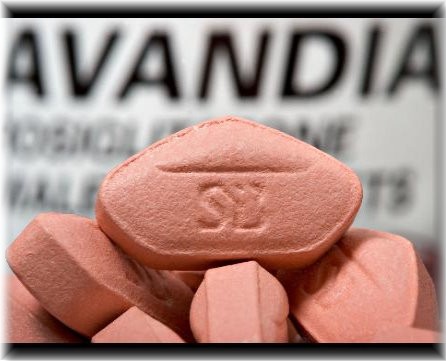
In March and May 2007, the FDA issued national Avandia warnings to alert medical professionals and the public about the health risks associated with Avandia use.
Along with highlighting the factors that put patients at a higher risk of developing Avandia side effects, the FDA also ordered GlaxoSmithKline to print "black box" warnings on Avandia labels.
Black box drug warnings are the most serious FDA warnings, as they indicate a drug's potential of causing fatal side effects.
On the heels of these FDA Avandia drug warnings, in September 2007, a study conducted by the Cleveland Clinic found that Avandia patients were:
* 43 percent more likely to have a heart attack
* 50 percent more likely to suffer from congestive heart failure
* 64 percent more likely to experience sudden cardiac death.
September 3rd, 2008 by Austin Kirk The diabetes drug Avandia has been associated with a 40% increase in the risk of heart attacks, as well as an increased risk of congestive heart failure, bone fractures and in some cases vision loss. A recent editorial in a medical journal questions the FDA’s decision not to issue an Avandia recall.
Avandia lawsuits are personal injury cases in which patients injured after taking the Avandia prescription medication seek compensation from GlaxoSmithKline, the maker of Avandia. Whether filed as an individual claim or an Avandia class action case, Avandia lawsuits can win settlements for affected patients by proving that:
Avandia patients who develop one (or more) of the following conditions will likely have a viable legal claim and will be entitled to compensation for their injuries:
Families of patients who have died due to Avandia complications will also be entitled to monetary settlements for their loss. In such instances of Avandia death, it's typically a better idea to file an individual lawsuit, rather than join a class action case.
More Info
Created on ... October 31, 2009